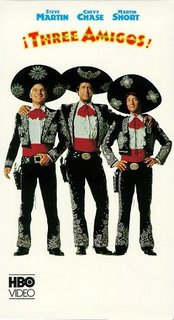 The NY Times published an interesting article yesterday: Evangelicals Debate the Meaning of ‘Evangelical’ by Michael Luo. Luo opens with the idea that evangelicals are experiencing a fracturing of sorts: “old fissures are widening, and new theological and political splits are developing.”
The NY Times published an interesting article yesterday: Evangelicals Debate the Meaning of ‘Evangelical’ by Michael Luo. Luo opens with the idea that evangelicals are experiencing a fracturing of sorts: “old fissures are widening, and new theological and political splits are developing.”Luo deals with the political splits first, rightly observing (though a bit simplistically) that evangelicals are splitting on issues like global warming and immigration. For context, he turns to Dr. John C. Green of the Pew Forum on Religion and Public Life, who separates evangelicals into three camps, traditionalist, centrist and modernist:
The traditionalists, characterized by high affinity for orthodox religious beliefs and little inclination to adapt them to a changing world, bear the closest resemblance to what has been labeled the Christian right, whose most visible spokesmen have been figures like the Rev. Jerry Falwell and the television evangelist Pat Robertson . . .Don't ya just love categories? Anyway, then Luo moves onto the theological splits that come from (drumroll) the “emerging church movement.” How does he define the movement?
Centrists, he said, might be represented by the Rev. Rick Warren, pastor of Saddleback Church in Orange County, Calif., and author of the best-selling book, "The Purpose Driven Life." Mr. Warren is theologically and socially conservative, but has mostly avoided politics and recently turned much of his focus to fighting poverty and AIDS in Africa.
According to Dr. Green's findings from a survey taken in 2004, the traditionalist and centrist segments are roughly the same size within evangelicalism, each accounting for approximately 40 to 50 percent of the movement's adherents. Modernist evangelicals, who have much more diversity in their beliefs and lower levels of church attendance, are a small minority. Fissures between the traditionalist and centrist camps of evangelicalism have begun to emerge much more prominently in recent months in the political realm.
Although much of the attention on the emerging church movement has been on changes that its leaders have made in worship — bringing back liturgy and ancient practices like meditation and chanting — the movement has also sought to introduce theological innovations.Okay, while some of the emerging movement discussion is on these issues, this is, in my opinion, a rather gross misrepresentation which fosters a stereotype that both a certain segment inside the church and many of those outside church circles are apt to perpetuate. Some inside the church are extremely uncomfortable with conversations questioning theology because they see questions automatically as a desire to undermine the authority of Scripture and/or the church (which Luo’s description fosters). I think those outside the church like this kind of description because it represents something closer to their own worldview (but that’s just my opinion). With this kind of stereotype being perpetuated, it leaves many in the evangelical movement with a limited (if not false) understanding of the movement (which is part of the reason I responded to Terry Mattingly's GetReligion post on the same topic; you can see my comment at the end of his post).
It emphasizes reading the Bible as a narrative, perfect in its purposes but not necessarily inerrant; de-emphasizing individual salvation in favor of a more holistic mission in serving the world; even making evangelicals less absolutist on whether people from other religions might find their way to heaven.
However, the emerging movement/discussion is much broader than that. In fact, there are many Christians who hold to Christian orthodoxy and value Church tradition who are in this discussion—and still asking hard questions. See, for example, here and here and here.
Back to Luo and his article, which closes with an interesting blip about how some evangelicals are suggesting the term should be dropped for something else:
Today, with the term, "evangelical," often equated with "fundamentalist," many in the movement are even discussing whether the label evangelical should be jettisoned completely, said David Neff, editor of Christianity Today, an evangelical magazine.And that's it. Interesting article, albeit with some portions I'd have really liked to have seen fleshed out. It will be interesting to see if evangelicals (and emerging movement folks) respond to this one. Let me know if you see anything out there.
"I did sit in a room with a number of key leaders, some Christian college presidents, some representatives of major college ministries," he said. "They were seriously discussing whether the word evangelical should be used anymore, or should we call ourselves classic Christians or historic orthodox Christians."
(Image: Amazon)